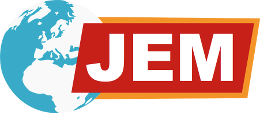Language Skills
Language learning in the host country has been discussed in a workshop organised in le Puy-en-Velay in November 2014. It has also been included in the Workshop in Madrid in April 2015. Participants have exchanged about their experience of learning or teaching the language of the host country. Methods and tools have been discussed.
Together we have worked in small groups to shape our ideal language course.
The best language lesson

The size of the group needs to be limited, 8 learners seem to be a good balance to provide enough communication opportunities to all. In a sub-group even smaller numbers were targeted with 3-7 participants set as the ideal dimension. It is interesting to mix the groups regarding the origin of participants, so that they can develop intercultural skills at the same time. Language courses shouldn't be limited as such and should include cultural components, applied components such as speciality languages (such as language targeted to industry for example) and employment support (including presentation skills, information regarding accreditation of skills and validation of prior learning procedures in the host country, practice workshop to elaborate CV adapted to the cultural habits of the host country).
The lack of network (social, family, professional) is a strong barrier to employment for immigrants. As a consequence, networking should be fully integrated in the “language” courses. Event with external parties should be organised. In addition, mentoring support can be provided by citizens in order to facilitate the social integration and the participation to social activities.
Practical workshops can be organised (e.g. cooking workshops, industrial workshops...) so that immigrants get acquainted with some cultural aspects of work. To reach the same objective, short practice periods in companies can be organised with the support of employers (and possibly employment agencies).
A mix of support need to be used to take into account the various learning styles of the participants (a pre-evaluation of the learning styles can be proposed to the learners – if the results of this kind of questionnaire are not fully convincing, at least, this step is useful to make the learner thinking about his/her learning style – this self-reflection is more interesting than the existing questionnaires).
Learning a foreign language

The concept of the personal learning environment has been introduced to conclude this workshop. It has been presented as an objective for both parts, to be tackled during the face to face learning phase, in order to give the learner the means to continue to learn, to organise and to monitor his/her learning path, after the end of the formal training period. It is particularly important when the welcoming countries put little effort in providing language learning opportunities to immigrants (either by reducing the number of hours for free courses, either by financing training hours, only with the aim to reach a basic level, such as A1.1 or A1). The task of the pedagog is then to prepare the migrant to organise his/her learning environment, by using all the existing free opportunities: non-profit local organisations that give free courses, use of the family ans school resources, use of libraries, use of the internet. The time spent in the training centre should give all the keys and methods so that each one can leave the centre with his/her own personal learning environment (including a list of actions to undertake, a list of resources to use, persons to contact, objectives to reach, etc.).
Difficulties expressed by trainers are the following:
- The heterogeneity of learners;
- Immigrants facing illiteracy problems (in their mother language);
- Immigrants having difficulties to read and to write. Even if language course are targeted towards the development of oral skills, it is needed to use writing material in order to be able to manage groups that includes various levels (or the groups should be of the same level). For example an exercice designed to develop oral understanding cannot be done on a stand alone basis if the learner is not able to write down the answers.
- It is not possible to reach a level B1 or B2 that is required by the administration in charge of financing courses for immigrans without using writing (the European framework for languages is built,
- when the educational level is very low, it is difficult to use the computer to support or mediate the learning process
- the duration of the language sessions is not adapted: for example, for practical reasons 6 hours daily sessions are organised (it is convenient both for the training centre and for the immigrants that can manage their family or labour duties more easily). It is a too big duration for maintaining the attention of the learners. Shorter sessions spread all over the weak would be more useful.
Languages and employment learning ressources
- Parlemploi: to learn to search for employment in France by learning French.
- Job Capsules: knowing about jobs in France by learning French.
- Citim: an e-learning tool to allow immigrants to understand the French working world.
- A Spanish course for foreigners, also based on videos
Presentations
- French as the language for integration - Greta (pdf). This concept has replaced the French as a Foreign Language former concept for the courses organised to newcomers who ask for residence permits.
- English language education for migrants - Jenny Verney (pdf)



 JEM is a
JEM is a